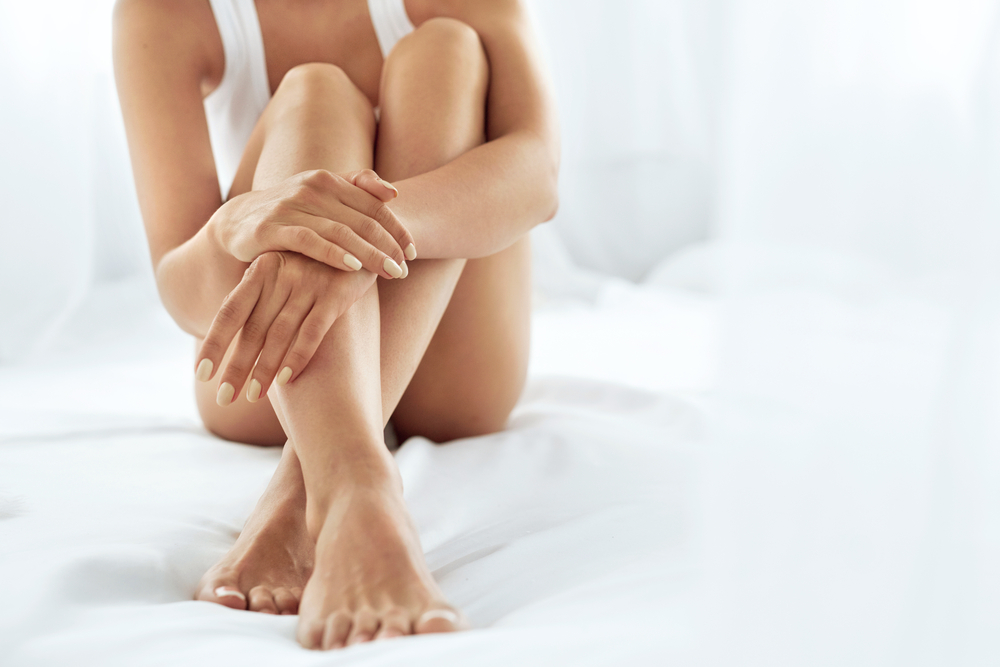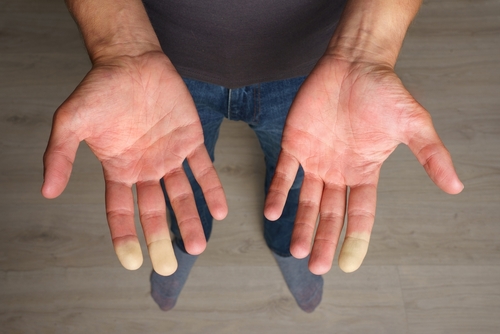As the body’s largest organ, your skin must cope with a wide variety of situations that can either temporarily or permanently damage the cells and alter the appearance, elasticity, and general condition of the surface.
Several common skin conditions bear no bias as to who they afflict, and with this in mind, the following are the five most common skin diseases and how to reduce the severity of flare-ups should you be living with one.

1. Psoriasis
Psoriasis is a skin condition which, unless you have been diagnosed with it yourself, or else have a close family member or friend who has, is often muddled with other conditions and therefore underestimated.

There is no cure for psoriasis, and although the skin disease presents itself as a topical, visible red, and itchy patch, the actual causes are thought to be far more psychological and neurological.
Interestingly, psoriasis is thought to often be triggered by an emotional event, such as a parent dying young, for example and there are also thought to be links between people who have a strong immune system and are generally overthinkers, as the essence of psoriasis is when skin cells are over produced and at speed.
2. Eczema
Eczema, otherwise known as dermatitis, is a dry skin condition that can affect males and females, the old and young, and different ethnicities and skin colors, with the more common eczema type, atopic eczema, affecting one in ten adults in the UK.

People suffering from eczema report exceedingly irritated, inflamed, and itchy skin when a flare-up occurs, and often, as with many other skin diseases, the area quickly becomes cracked, red, raw, and sometimes unbearably sore.
There are many different types of eczema aside from the aforementioned atopic, including:
- Female genital eczema
- Discoid eczema
- Ear eczema
- Contact eczema
- Scalp eczema
- Varicose eczema
- Seborrhoeic eczema
3. Rosacea
Rosacea is a skin condition that only ever affects the skin on the face and neck and can manifest itself in small patches across the cheekbones, or else cover the entirety of the head.
Luckily, there are many different kinds of treatments designed and created to help keep rosacea at bay. Still, one of the newest and most innovative suggestions for new treatments to try would be to undergo a course in medical cannabis.

Medical cannabis is gaining both respect and popularity for people who are living with myriad different problems, from rosacea and psoriasis to more serious and long-lasting conditions such as multiple sclerosis and epilepsy.
Take a look at the highly rated sapphire reviews to discover more information about medical cannabis and how a prescribed course of the drug could help your skin to reduce in inflammation and swelling and generally become less irritating and itchy moving forward.
4. Raynaud’s Syndrome
Raynaud’s syndrome (or Raynaud’s phenomenon) is a condition whereby when it is freezing cold outside, the blood stops flowing to one or more of your toes and/or one or more of your fingers.

Now, even though this is not typically thought of as a skin condition, the extremity afflicted with Raynaud’s syndrome tends to turn bright white. Although exceedingly common and rarely causes any serious health problems, it can occasionally be a sign and symptom of another underlying health issue.
The simplest and usually the most effective treatment for Raynaud’s syndrome is to simply ensure you keep your fingers and toes as warm as possible, and should you be heading out into the British winter for the evening, make sure you wear thermal gloves and socks.
5. Acne
There is no doubt that, even if you never experienced a breakout of acne in your younger days, you know someone who either had or is still battling a breakout in your life.

Acne can not only be itchy, and inflamed and affect both the duration and quality of sleep, but it can also cause serious psychological problems and begin to affect the mental health of the individual afflicted.
Although acne usually starts in puberty, with teenagers being the age group who usually live with the condition for months or even years, adult acne seems to be rising in the number of reported cases.
If you are living with acne, the best thing to do is to book a doctor’s appointment, and together, you and your GP can discuss your various options and work out a treatment schedule that does not interfere with any other prescription medication you are currently taking.





